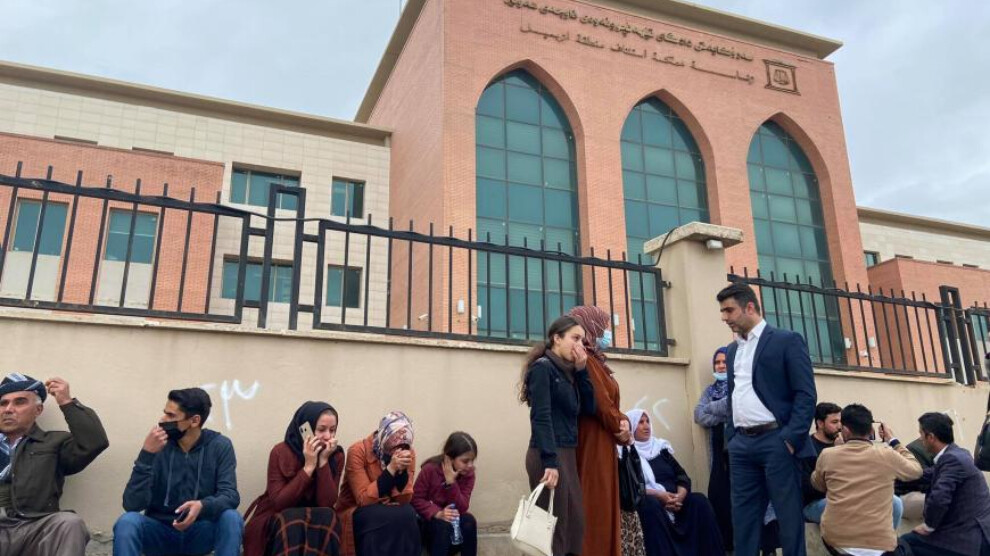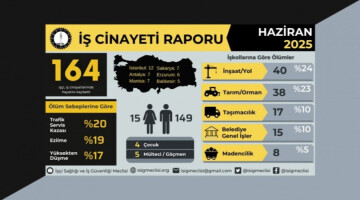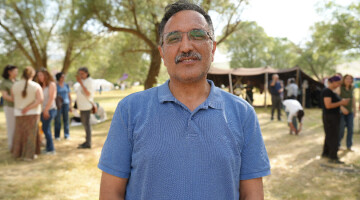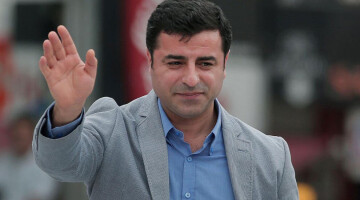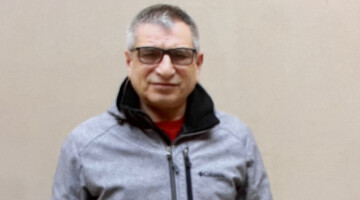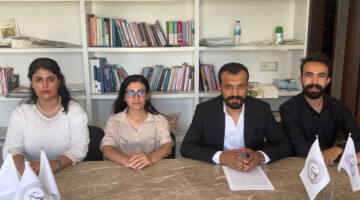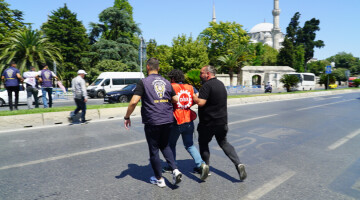In the run-up to the appeal verdict in the case of five journalists and activists from the Behdinan region of southern Kurdistan (northern Iraq), Human Rights Watch (HRW) has denounced the proceedings as "deeply flawed" and "unfair." The trial was marked by "serious violations of international fair trial standards" as well as "political interference from the highest levels," according to a report released Thursday by the human rights organization. Authorities involved in the appeal should take these violations into account in its decision, HRW demands.
Journalists Sherwan Sherwani, Guhdar Zebari and Ayaz Karam, as well as activists Shivan Saeed Omar and Hariwan Issa, were arrested last October along with dozens of others in connection with the anti-government protests against mismanagement, corruption and outstanding civil servants' salaries. In some cases, their whereabouts were unknown for more than three months. In February, they were each sentenced to six years in prison for "undermining national security" in a contrived trial by a criminal court in Hewlêr (Erbil). The hearing took place behind closed doors, and the defendants said they were forced under torture to sign "prefabricated confessions." While in pre-trial detention, they were denied the right to access their legal counsel. Only at the trial on February 15 and 16 were they able to speak to their lawyers for a few minutes shortly before the hearing. This situation continues now. Family contacts are also almost non-existent.
Sentence dictated by Prime Minister
The sentence against Sherwani and his co-defendants was effectively dictated by Prime Minister Masrour Barzani (KDP) who slandered the defendants as "spies" and accused them of espionage at a press conference only a few days before the verdict was announced. HRW called Barzani's claims "undue political interference in the process at the highest level”, saying that this would violate the presumption of innocence.
Teacher not released despite court ruling
Teacher Badal Barwari and journalist Omed Baroshki had been arrested in August. The security authorities accused them of "planning unauthorized demonstrations." Although the Erbil Criminal Court ruled in their case in mid-February that there was insufficient evidence to charge them, they are not released from prison. This is not the first arbitrary detention for either Barwari or Baroshki. Both men are known for their criticism of the government in Erbil.
A new low in Kurdistan region
“Flawed trials in the Kurdistan Region are nothing new,” said Belkis Wille, senior crisis and conflict researcher at Human Rights Watch, “But flaunting the most basic principles of justice to punish people for allegedly planning protests is a new low.”
Human Rights Watch spoke with several observers of the trial of the Behdinan activists and journalists, according to the research report. The sources consulted, including a lawyer for the defendants, confirmed to the organization that the security authorities of the Kurdistan Regional Government have systematically cut off the detainees from their outside world. To this day, the defense still has no access to the investigation files: despite court orders, the KDP’s domestic intelligence service refuses to grant access to the files. The lawyers only learned of the trial date a week beforehand.
“We had been told the judge was sick and so we should expect postponements but suddenly the trial was announced and none of us were prepared,” the lawyer said.
Threats against Sherwan Sherwani
The report also mentions violence by security forces during the arrest of Omed Baroshki and threats against Sherwan Sherwani to "sexually abuse" his wife and mother if he did not sign the prefabricated confession. In recent months there have been repeated reports that Behdinan activists and journalists from the region are being subjected to physical and psychological torture in prison.
“These recent convictions only further compound the Kurdistan Region's worsening reputation as a place where people can face unfair criminal trials merely for critiquing government policies they object to and expressing concerns about the political elites,” Wille said.
The detained journalists and activists have been on hunger strike since February 17. They are protesting poor prison conditions, mistreatment by prison staff and torture.

